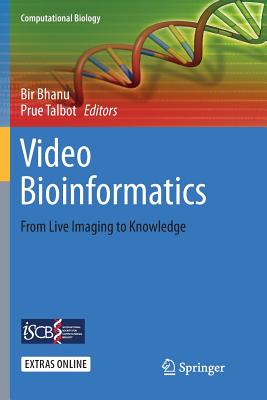Human Brain Organoids: Scientific and Ethical Considerations
Hyun, Insoo, Lunshof, Jeantine E.
- 出版商: Springer
- 出版日期: 2024-12-23
- 售價: $7,030
- 貴賓價: 9.5 折 $6,679
- 語言: 英文
- 頁數: 171
- 裝訂: Hardcover - also called cloth, retail trade, or trade
- ISBN: 3031723708
- ISBN-13: 9783031723704
-
相關分類:
GAN 生成對抗網絡
尚未上市,無法訂購
相關主題
商品描述
Brain organoids are small stem cell-derived, self-organizing models of specific brain regions that offer researchers new ways to study the human brain. Since their scientific debut over ten years ago, brain organoids have been used to generate tractable new bioengineered tools for understanding functional interconnectivity of the human brain, dysfunction involved in many neurodegenerative diseases, and certain molecular mechanisms underlying cognition.
Despite this field's considerable scientific promise, advances in human brain organoid research also raise novel philosophical questions and ethical concerns around the use of complex human brain models and the ethical boundaries that should exist when manipulating increasingly realistic bioengineered brain constructs. As researchers generate more realistic organoids in vitro that resemble human brains, it is critically important to understand what ethical boundaries may exist and where researchers and regulators should draw the line for research, both to reduce uncertainties over which projects to pursue in the lab and to address future concerns regulators and the public may harbor about whether this research, if left unexamined, could inadvertently undermine public trust in science. This proposed book delves into ongoing and proactive ethical discussions among ethicists and the neuroscientists involved with this cutting-edge work. Its ultimate goal is to foster greater awareness, understanding, and guidance for future management of ethical issues that may be unique to new areas of brain organoid research. This volume is the result of a close partnership between ethicists and scientists, each informing the other through a collaborative process of joint bioethical deliberation.
商品描述(中文翻譯)
腦類器官是小型的幹細胞衍生、自我組織的特定腦區模型,為研究人員提供了研究人類大腦的新方法。自十多年前首次亮相以來,腦類器官已被用來生成可操作的新生物工程工具,以理解人類大腦的功能性互聯性、許多神經退行性疾病中涉及的功能障礙,以及某些認知背後的分子機制。
儘管這一領域具有相當大的科學潛力,但人類腦類器官研究的進展也引發了新的哲學問題和倫理擔憂,關於使用複雜的人類腦模型以及在操控日益真實的生物工程腦結構時應存在的倫理界限。隨著研究人員在體外生成更類似人類大腦的真實腦類器官,了解可能存在的倫理界限至關重要,並且研究人員和監管機構應該在哪裡劃定研究的界限,以減少對於在實驗室中追求哪些項目的不確定性,並解決未來監管機構和公眾可能對這項研究的擔憂,特別是如果這項研究未經檢視,可能會無意中削弱公眾對科學的信任。本書旨在深入探討倫理學家和參與這項尖端工作的神經科學家之間持續且積極的倫理討論。其最終目標是促進對未來管理可能獨特於新領域腦類器官研究的倫理問題的更大認識、理解和指導。本卷是倫理學家和科學家之間密切合作的結果,雙方通過共同的生物倫理審議過程相互啟發。
作者簡介
Insoo Hyun, Ph.D., received his BA and MA in Philosophy with Honors in Ethics in Society from Stanford University and his PhD in Philosophy from Brown University. He is the Director of the Center for Life Sciences and Public Learning at the Museum of Science, Boston and an Affiliate of the Center for Bioethics at Harvard Medical School. Previously, Dr. Hyun was Professor of Bioethics and Philosophy at Case Western Reserve University School of Medicine, where he has taught undergraduate, graduate, and medical students for over 18 years. Since 2005, Dr. Hyun has been heavily involved with the International Society for Stem Cell Research (ISSCR). He has helped draft all of the ISSCR's international research guidelines, including the guidelines for brain organoid research, and has twice served as the Chair of the ISSCR Ethics Committee. His intellectual interests include stem cell ethics and policy, emerging technologies in the life sciences, and new strategies for community engagement in bioengineering. From 2018 to 2021, he co-led with Jeantine E. Lunshof an NIH BRAIN Initiative-funded project exploring the ethics of human brain organoid research, in collaboration with three leading laboratories at Harvard University, Harvard Medical School, and Stanford University. His book Bioethics and the Future of Stem Cell Research was published by Cambridge University Press in 2013.
Jeantine E. Lunshof, Ph.D., received her BA in Philosophy and Tibetan Language and Culture from the University of Hamburg, her MA in Philosophy and Health Law from the University of Amsterdam, and her PhD from VU University Amsterdam. Following her BA, she obtained an RN and worked over 10 years in clinical oncology. She is currently Collaborative Ethics Lead at the Wyss Institute for Biologically Inspired Engineering at Harvard University. As a collaborator of George Church in the Department of Genetics at Harvard Medical School she developed the model of 'Collaborative Ethics' that she is currently implementing across the field of biologically inspired engineering at the Wyss Institute. Recent work has been on stem cell-derived nervous system organoids, embryo-like entities, and AI-designed biological systems.
作者簡介(中文翻譯)
Insoo Hyun 博士,獲得斯坦福大學倫理學與社會哲學的榮譽學士及碩士學位,並在布朗大學獲得哲學博士學位。他是波士頓科學博物館生命科學與公共學習中心的主任,也是哈佛醫學院生物倫理中心的聯盟成員。Hyun 博士曾任凱斯西儲大學醫學院的生物倫理學與哲學教授,並在該校教授本科生、研究生及醫學生超過18年。自2005年以來,Hyun 博士積極參與國際幹細胞研究學會(ISSCR)。他協助起草了所有ISSCR的國際研究指導方針,包括腦類器官研究的指導方針,並兩度擔任ISSCR倫理委員會的主席。他的學術興趣包括幹細胞倫理與政策、生命科學中的新興技術,以及生物工程中社區參與的新策略。從2018年到2021年,他與 Jeantine E. Lunshof 共同領導了一個由 NIH BRAIN Initiative 資助的項目,探討人類腦類器官研究的倫理,並與哈佛大學、哈佛醫學院及斯坦福大學的三個領先實驗室合作。他的著作《Bioethics and the Future of Stem Cell Research》於2013年由劍橋大學出版社出版。
Jeantine E. Lunshof 博士,獲得漢堡大學哲學及藏語文化的學士學位,阿姆斯特丹大學哲學及健康法的碩士學位,並在阿姆斯特丹自由大學獲得博士學位。在獲得學士學位後,她取得了註冊護士資格,並在臨床腫瘤學工作超過10年。她目前是哈佛大學韋斯生物啟發工程研究所的協作倫理負責人。作為哈佛醫學院遺傳學系的 George Church 的合作者,她開發了“協作倫理”的模型,並正在韋斯研究所的生物啟發工程領域中實施。最近的研究集中在幹細胞衍生的神經系統類器官、類胚胎實體及 AI 設計的生物系統上。












